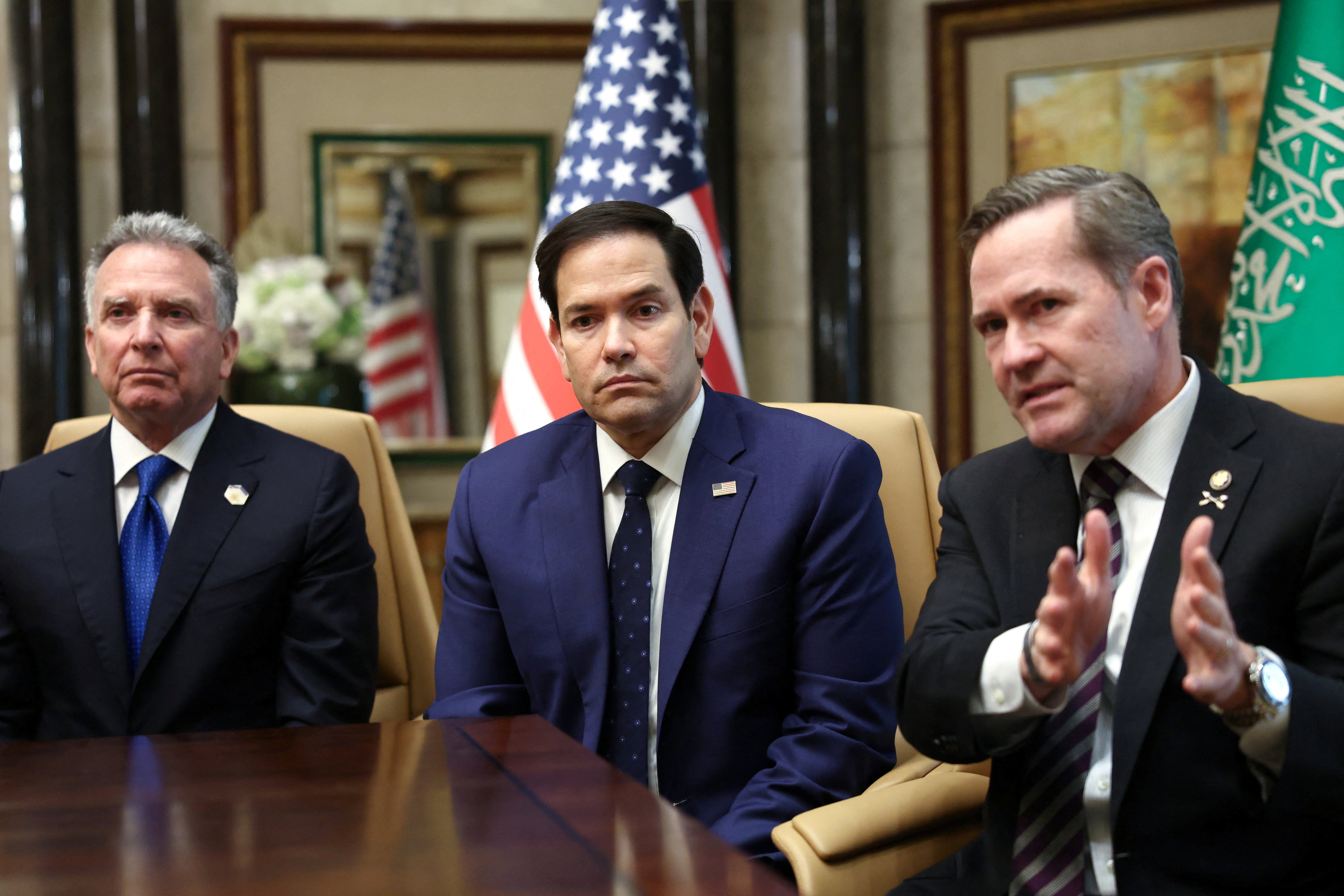The US and Russia held talks in Saudi Arabia on Tuesday that set the scene for a seismic shift in relations – and a potential turning point for the Ukraine war after three bloody years.
American negotiators emerged from the talks in Riyadh pushing back on criticism that they had sidelined Europe and Kyiv while promising warmer relations with Moscow. After two weeks of dramatic attacks on Nato, European democratic processes, and interventions behind Russian and right-wing causes on the continent, the US team led by Donald Trump’s secretary of state Marco Rubio returned to language closer resembling traditional diplomacy.
It marks a huge move away from isolating Russia to bringing Moscow in from the cold. This will add to concerns in Europe that Mr Trump is prioritising warm relations with Russia over the continent’s security and Ukrainian sovereignty.
Click here for the latest updates on the war

After the four-and-a-half-hour talks concluded, Russian foreign minister Sergei Lavrov reiterated that Nato membership for Ukraine was unacceptable, as was the appearance of Nato member troops – even if they were operating in the country under a different flag.
Mr Trump has long argued for a closer relationship with Russia and his team started the process to formally deliver it. During Tuesday’s meeting, the two sides discussed ways to address “irritants to our bilateral relationship” as part of the bid to improve diplomatic relations, without going into specifics.
On Ukraine, Mr Rubio said a “high-level team” had been appointed by both Russia and the US to begin talks aimed at ending the war, stressing that concessions would be needed on all sides for any ceasefire to be a success.
Talking over the heads of Ukraine and Europe has been widely condemned by the US’s allies and by Ukrainian president Volodymyr Zelensky, who was also in the Middle East but excluded from the talks with Russia.
Mr Rubio appeared to concede that “shuttle diplomacy” – negotiations conducted by a mediator when the parties are reluctant to hold direct discussions – required input from other countries.

“Obviously, there’s going to be engagement and consultation with Ukraine, with our partners in Europe and others. But ultimately, the Russian side will be indispensable to this effort,” he said, and that effort would be impossible to make unless relations were improved with Moscow.
He repeatedly referred to the need to normalise relations, end the conflict in Ukraine and then look towards the “extraordinary opportunities” for commerce with Russia but also in geopolitical efforts.
The latter was clearly a signal that the US was hoping to prise Russia away from Chinese influence and bring it closer to the Western sphere over the long term.
“I think the key really in all of this is ultimately going to be whether an agreement can be reached with all parties involved on an acceptable resolution to the conflict in Ukraine … We have to get the Ukraine situation resolved first,” Mr Rubio said.
There were no signs that substantive talks on Ukraine had begun from the American side.
But Russia capitalised immediately on the warming of relations hosted by Saudi Arabia, a country with deep commercial connections to the Trump family which the US president also wants to bind more closely to Israel.
Mr Lavrov’s statement regarding Nato troops was clearly intended for European ears as the US has ruled out sending US soldiers to guarantee Ukrainian security, even after a future peace agreement, and said that such a development could not operate under Nato either.
However, European countries, led by Britain and France, are beginning to countenance the idea of a pan-European security force for Ukraine but only after some kind of peace deal is struck.





.jpg?w=600)

